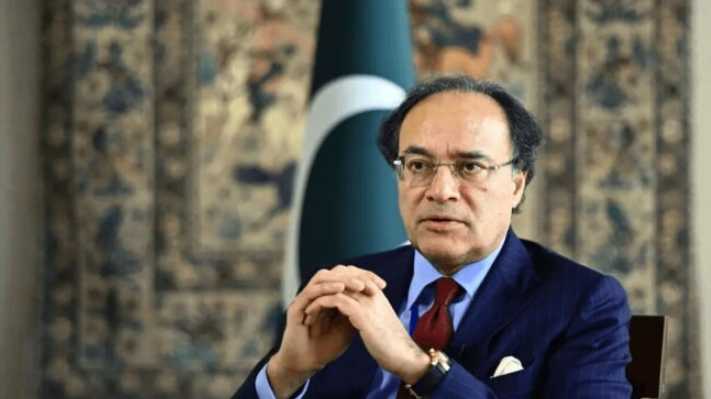Islamabad (Web Desk/Agencies): Federal Minister for Finance and Revenue, Senator Muhammad Aurangzeb said Thursday that fundamental economic reforms were needed to make the existing International Monetary Fund (IMF) programme the last one for the country.
Transformation of the economy into an export-driven one necessitates structural reforms, only then could the country move forward in the next three years, the minister said in an interview with Voice of America after the IMF loan programme’s approval.
It is pertinent to mention that IMF board on Wednesday approved the 37-month Extended Fund Facility (EFF) programme of $7 billion for Pakistan and has authorized the immediate release of the first tranche of about $1 billion.
“The friendly countries have assured financial support to meet the financial needs through the new IMF programme,” the minister.
The minister said the government had no choice but to implement economic reforms, which included bringing sectors currently outside the tax net into the fold.
Aurangzeb said that the burden on salaried and manufacturing classes would be reduced and highlighted the need to bring into tax net the retailers, wholesalers, agriculture, and property sectors.
The finance minister said that despite a 29% increase in revenues last year, the tax-to-GDP ratio remained at 9%, which is insufficient to stabilize any country’s economy.
He mentioned that the government was abolishing the term “non-filer” and will impose restrictions on tax evaders, limiting their ability to conduct various activities.
The minister noted that the government possesses data on individuals’ lifestyles, including the number of vehicles owned, international travel, and other expenditures. This information will enable the Federal Board of Revenue (FBR) to bring tax evaders into the tax net without arrest, he added.
The minister said Pakistan’s undocumented economy has been valued at Rs.9 trillion, which needed to be documented.
He said Prime Minister Shehbaz Sharif believed that business should be handled by the private sector and not by the government.
“To achieve this, the cabinet’s privatization committee has advanced the privatization process of government institutions to its final stages,” he added.


